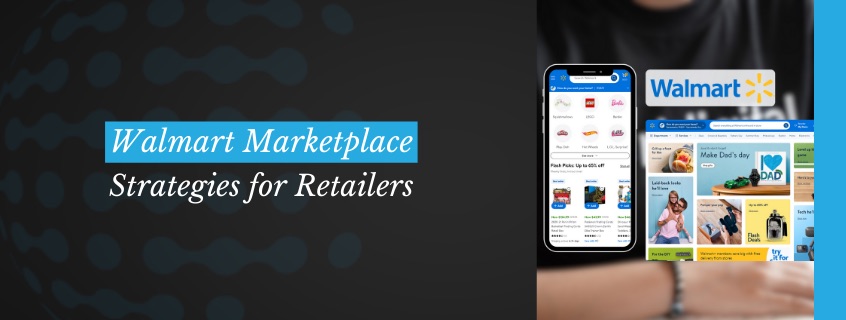If you’re trying to grow your business online, you’ve probably heard that keyword research is important. But here’s the real deal: keyword research for targeted traffic isn’t just important—it’s essential. It’s like a roadmap that shows you exactly where your customers are hanging out and what they’re searching for. Without it, your digital marketing efforts can end up lost, wasting money, time, and energy.
At World Digital, we believe in strategies that are smart, simple, and results-driven. So let’s walk through how smart keyword research can bring in the right traffic—the kind that converts.
Why Keyword Research for Targeted Traffic Matters
You wouldn’t open a store without knowing what your customers want, right? The same rule applies to your website. Keyword research for targeted traffic helps you:
- Find what your ideal customers are searching for.
- Understand their problems and needs.
- Create content that actually answers their questions.
- Increase the chances of showing up on Google when it matters most.
Here’s why it really matters:
- 🎯 More targeted traffic means more people who are actually interested in what you offer.
- 💰 Better targeting = better ROI on ads and content.
- ⏱️ Saves time by focusing only on what works.
Looking for ways to boost your digital reach? Check out how we help businesses grow online with proven marketing strategies at World Digital.
The Basics: What is Keyword Research for Targeted Traffic?
Let’s break it down in simple terms. Keyword research for targeted traffic is like detective work—you’re digging into the exact words and phrases your potential customers type into search engines.
Common Types of Keywords:
| Keyword Type | What It Means | Example |
|---|---|---|
| Short-tail keywords | General terms, high search volume, low conversion | “shoes” |
| Long-tail keywords | Specific terms, lower search volume, high conversion | “men’s waterproof hiking boots” |
| Local keywords | Include a location to target people nearby | “plumber in Austin TX” |
| Branded keywords | Include your brand name | “Nike running shoes” |
Description List – Terms You Should Know:
- Search Intent: Why someone is searching. Are they looking to buy? Learn? Compare?
- Volume: How many people are searching that keyword each month.
- Competition: How hard it is to rank for that keyword.
- CPC (Cost Per Click): How much advertisers are willing to pay for that keyword.
These are the building blocks. Get them right, and you’re already ahead.
Step-by-Step: How to Do Keyword Research for Targeted Traffic
Want to get real results? Follow these steps to build your keyword strategy like a pro:
- Know Your Audience
- What are their problems?
- What words do they use?
- What are they Googling when they need your product or service?
- Use the Right Tools
- Free: Google Keyword Planner, Ubersuggest, AnswerThePublic
- Paid: Ahrefs, SEMrush, Moz
- Use filters to find low-competition, high-intent keywords.
- Build Keyword Buckets
- Organize your keywords by topic or product category.
- This helps you build targeted landing pages or blog content later.
- Check the Competition
- Search your keyword in Google.
- Look at who’s ranking, what they’re writing about, and what you can do better.
- Choose Keywords with Intent
- Focus on keywords that match what your customer is ready to do: learn, compare, or buy.
Want help targeting the right keywords? Discover our powerful PPC services that focus on clicks that convert at World Digital PPC.
Turning Keywords Into Traffic That Converts
Doing keyword research is one thing. Using it the right way is what gets you results. Here’s how to turn all that keyword data into real-world action:
Use Your Keywords Wisely
- In your page titles and meta descriptions
- Naturally in your blog posts, product descriptions, and ads
- Inside H2 headers (like this one!) to boost SEO signals
- In URLs and image alt tags for even more visibility
Real-Life Example:
Let’s say you sell vegan protein powder. Instead of just targeting “protein powder,” you go for:
- “best vegan protein powder for women”
- “plant-based protein for weight loss”
- “gluten-free protein powder reviews”
These longer, more specific keywords are golden. They bring in people who already know what they want.
Ready to rise in rankings? Explore our results-driven SEO approach that drives real business outcomes at World Digital SEO.
Advanced Tips for Smarter Keyword Research
Want to go beyond the basics? Here’s how to make your strategy even stronger:
- Focus on intent first, not just volume. A keyword with 100 monthly searches and high intent can beat one with 10,000 and no purchase interest.
- Update your keywords every few months. Trends change fast.
- Use LSI keywords (related words and topics). Google loves it when your content feels complete.
- Don’t ignore local keywords if you serve a specific area.
Bonus: LSI Keyword Ideas for “Keyword Research for Targeted Traffic”
- “how to find converting keywords”
- “increase website traffic through SEO”
- “best keywords for business websites”
- “seo keyword planning for beginners”
Mixing in terms like these adds depth to your content and makes it easier for search engines to understand what your page is about.
Final Thoughts: Make Your Keywords Work For You
When you get keyword research for targeted traffic right, it transforms your whole digital strategy. It’s no longer about throwing content out and hoping it sticks. It’s about being smart, specific, and intentional.
You don’t need to guess what your customers want. The data is already there. All you need to do is tap into it, use it wisely, and build content that speaks directly to the people who are already searching for you.
If you’re ready to attract better traffic, boost your rankings, and stop wasting budget on guesswork—we’re here to help. Let’s get you seen by the people who matter most.
FAQs
1. How do I know which keywords will bring the right people to my website?
We analyze your audience’s search behavior to find high-intent keywords that match what real customers are actively looking for.
2. Can I do keyword research on my own or do I need a digital marketing agency?
You can start on your own, but partnering with our team ensures expert insights, better tools, and higher chances of converting traffic into sales.
3. What makes keyword research so important for my business?
It helps you attract visitors who are actually interested in your product or service, leading to more qualified leads and higher ROI.
4. How often should I update the keywords on my site?
We recommend reviewing your keywords every 3–6 months to stay ahead of trends and adjust to shifting customer behavior.
5. Do you offer keyword research as a stand-alone service?
Yes, we provide tailored keyword research strategies whether you’re running SEO, PPC, or content marketing campaigns.





